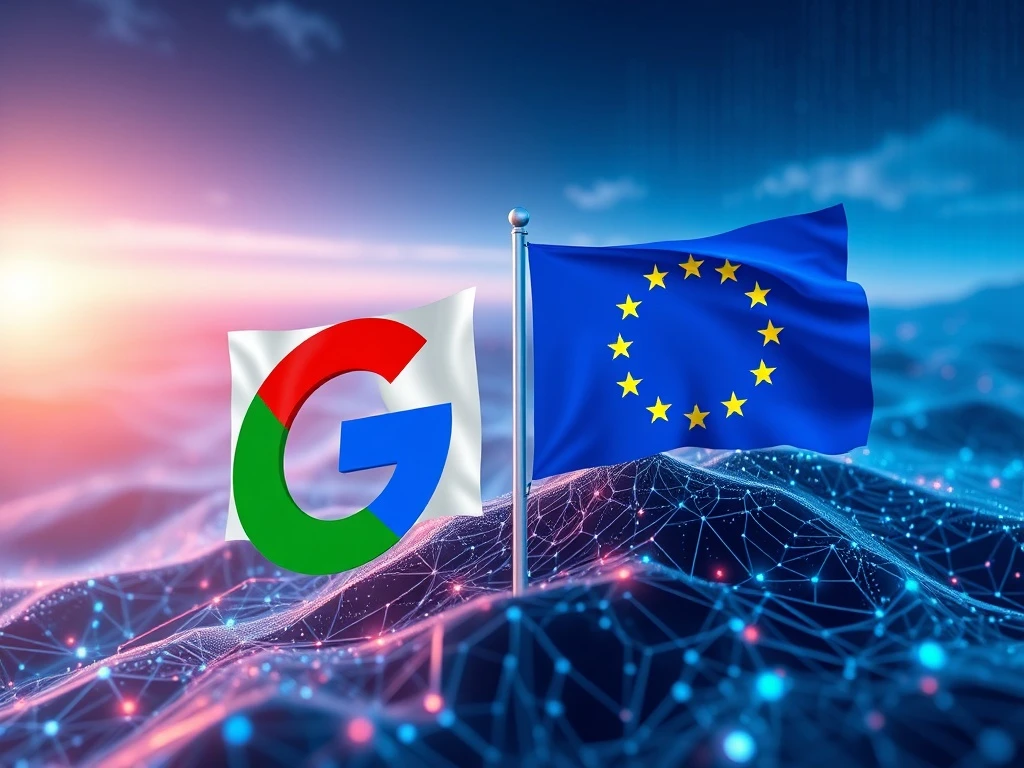Google Embraces EU AI Code: A Game-Changer for Global AI Regulation

In a groundbreaking move, Google has signed the EU’s AI Code of Practice, marking a pivotal shift in global AI regulation. This decision not only aligns with the EU’s AI Act but also sets a precedent for ethical AI development worldwide. What does this mean for the future of AI and tech giants like Google? Let’s dive in.
Google EU AI Code: What’s the Big Deal?
Google’s commitment to the EU’s voluntary AI Code of Practice is a strategic step toward aligning with the EU’s AI Act, a risk-based framework for AI governance. Here’s why this matters:
- Transparency: Google will provide updated documentation to enhance AI system transparency.
- Copyright Compliance: The company pledges to avoid pirated content in AI training and respect content owners’ requests.
- Ethical AI: The code emphasizes ethical AI development, addressing concerns like bias and accountability.
AI Regulation: Balancing Innovation and Oversight
While Google’s move is proactive, it’s not without reservations. Kent Walker, Google’s president of global affairs, highlights potential challenges:
- Bureaucratic Delays: Regulatory processes could slow down AI innovation in Europe.
- Legal Ambiguities: Unclear guidelines may create hurdles for developers.
- Trade Secrets: Compliance might require exposing proprietary information.
Global AI Standards: Will the EU Lead Again?
The EU has a history of shaping global standards, as seen with GDPR. The AI Act could follow suit, influencing policies worldwide. Key areas of impact include:
| High-Risk AI Applications | Potential Global Impact |
|---|---|
| Biometric Surveillance | Redefining privacy and security norms |
| Employment Algorithms | Setting ethical hiring practices |
Ethical AI: Google vs. Meta’s Divergent Paths
Google’s engagement contrasts sharply with Meta’s rejection of the EU’s approach. This divergence highlights the tech industry’s split on AI regulation:
- Google: Proactive participation to shape future compliance.
- Meta: Resistance, citing regulatory overreach.
Conclusion: A New Era for AI Governance
Google’s signing of the EU AI Code is a landmark moment in the tech-regulator relationship. By engaging early, Google positions itself as a leader in ethical AI, while the EU’s framework could become the global benchmark. The stakes are high, and the world is watching.
Frequently Asked Questions (FAQs)
- What is the EU AI Code of Practice?
A voluntary initiative encouraging AI developers to align with the EU’s AI Act, focusing on transparency and ethical practices. - Why did Google sign the EU AI Code?
To position itself as a leader in ethical AI and influence future regulatory standards. - How does this impact global AI regulation?
The EU’s framework could set a precedent, much like GDPR did for data privacy. - What are the risks for Google?
Potential slowdowns in innovation and exposure of trade secrets due to compliance requirements. - How does Meta’s stance differ from Google’s?
Meta rejects the EU’s approach, calling it overreach, while Google engages to shape the rules.










